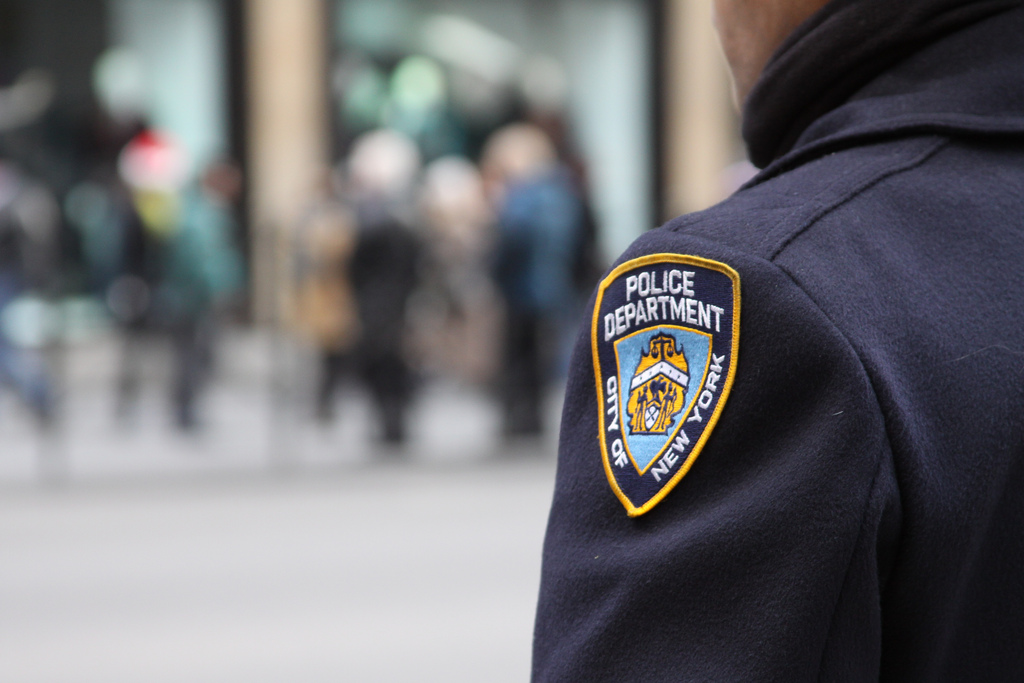By Donna Lieberman and Isabelle Kirshner
If we told you that 46 states have adopted fundamental reform that makes America’s criminal justice system fairer, you would probably expect New York to be among them.
But when it comes to sharing evidence before a criminal trial, also known as discovery, you would be sorely mistaken.
New York’s current law on evidence-sharing, often called the Blindfold Law, can keep people accused of crimes completely in the dark about critical evidence against them. Our state is one of the last remaining in the country – alongside only Louisiana, South Carolina, and Wyoming – that prevents criminal defendants from learning witness identities until the very start of a trial.
In New York, prosecutors have the power to simply withhold police reports, witness statements, video recordings and other key evidence until the very day a trial starts. They can even withhold evidence of a defendant’s innocence unless the individual DA prosecuting the case deems it important enough to disclose.
Unable to conduct independent investigations or prepare an informed defense, defendants are left to wonder whether they will be confronted at trial with surprise witnesses or information no one could have anticipated.
Those in the legal profession have a scornful name for this – Trial by Ambush.
Yet this blindfolding doesn’t just hobble the accused and their counsel in the courtroom; it affects the decisions people facing criminal charges must make from the very start. That’s because more than 95 percent of criminal convictions in New York state are the result of plea deals, never making it to a trial.
That means thousands of New Yorkers each year must decide whether to forfeit their right to a trial, without seeing the government’s evidence, including evidence they might be innocent. In the dark, and out of fear, many New Yorkers decide to plead guilty, unwilling to risk losing at trial and an even worse outcome.
Pleading guilty, even if you’re innocent, starts to make sense when you’re facing a stacked deck.
Lawmakers in Albany have finally begun to seriously reckon with this injustice, buoyed by an increasingly bipartisan push for criminal justice reform and an historic mandate for reforms in the wake of elections last fall. As legislative leaders mull over what reform should look like, the New York Civil Liberties Union and others have argued for two key principles to ensure that no one accepts a plea offer without seeing the evidence first.
New York’s discovery reform should be open, allowing the defense access to the prosecution’s entire evidence file. And it should be early, requiring the prosecution to disclose the evidence as soon as practicable – and prior to any plea deal. It should also be enforceable by the court, and leave decisions about whether or not evidence should be turned over to the discretion of the judge.
By implementing these reforms, New York will finally join the overwhelming number of states that have fairer and more open discovery practices. No state that has implemented open discovery has gone back to a more secretive framework.
As New York lifts the shroud of secrecy that now hides the evidence in a criminal case from the person who stands accused, it is critical to protect witnesses. Recent studies of states with open discovery show that there isn’t one iota of evidence that discovery reforms would lead to witness intimidation or harm. Every reform proposal under consideration in New York allows a district attorney to seek a full or partial protective order allowing them to withhold certain information or to restrict access to attorneys only. These mechanisms have been employed successfully for decades both here in New York and elsewhere to protect witnesses who may be at risk of harm from, such as survivors of sexual assault and domestic violence.
In fact, not only has discovery reform worked in other parts of the country, it’s worked right here in New York. The Brooklyn District Attorney’s office has already adopted an open discovery policy in many cases, ensuring a transparent process while offering witnesses the support they need.
Every American knows that you are presumed innocent until proven guilty. But few recognize how little that means when you cannot properly confront the charges against you.
It is time for New York to catch up with the rest of the country, end its rigged evidence game, and deliver on a crucial pillar of criminal justice reform.
This op-ed originally ran in the Syracuse Post-Standard on March 11, 2019.
